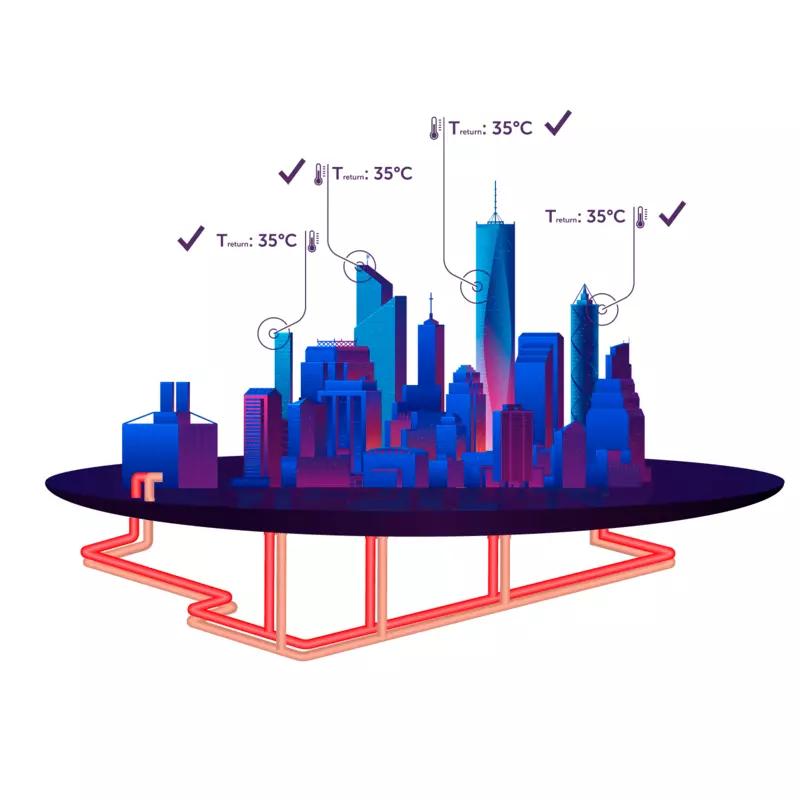Lower your return temperature, lower your costs.
District Heating Systems provide an efficient and sustainable approach for densely populated areas. However, the effectiveness of the system relies on the efficiency of every component within the network. Should a building experience inefficiencies, such as a high return temperature, it can impact the performance of the entire system.

High return temperature is a common issue in buildings but can be specifically detrimental in District Heating Systems

High return temperature reduces the temperature differential (Delta T).
A Low Delta T is a condition where the temperature difference (ΔT) between the supply and return water in a chilled or hot water system is significantly lower than the design specifications.
This phenomenon can lead to reduced system efficiency, increased energy consumption, and inadequate thermal comfort for building occupants.
By achiving optimal return temperature, you can benefit from
Improved energy efficiency and save costs
Minimise energy wastage caused by suboptimal conditions. In addition, it helps systems comply with country regulations, avoiding potential penalties and ensuring responsible operation.
Enhanced heating performance
HVAC equipment such as air handling units or fan coil units can achieve their desired heating output more efficiently. This ensures that occupants experience consistent and comfortable indoor temperatures throughout the building.
Extended equipment lifespan
When HVAC components operate under optimal conditions, they experience less strain and wear over time. This reduces the likelihood of breakdowns, extends the maintenance intervals, and ultimately extends the overall lifespan of the cooling system.

Fixing a high return temperature
To effectively address a high return temperature and Low Delta T within a building connected to a District heating network, it is crucial to comprehend its underlying causes. We have compiled a document detailing these factors and potential remedies.
Our solutions to high return temperature in buildings




